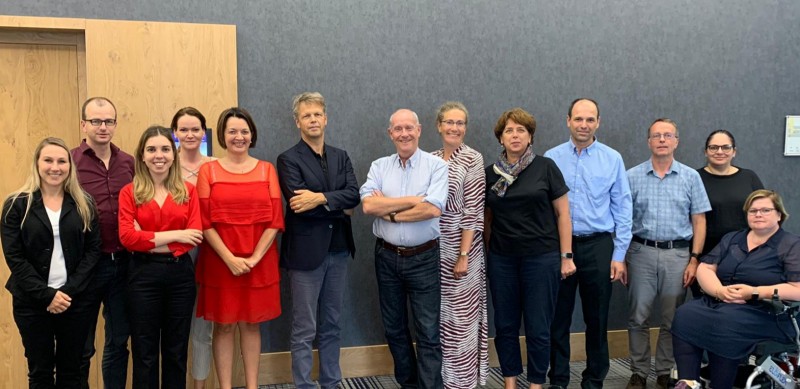
Aug 29, 2019
The first Steering Committee meeting for implementation of the Stroke Action Plan for Europe (SAPE) was held today in Munich. The Steering Committee’s main task will include a definition of a strategy framework, the Key Performance Indicators (KPIs) for monitoring the quality of care and
reaching the targets, as well as a definition of a dissemination strategy.
‘We have a golden moment now for this plan: we can prevent and treat stroke, and globally stroke plans are shifting the tide. On the other hand, if we do not all work together- health professionals, stroke support organisations, health care providers and governments- the pure number of predicted strokes will overload the health care systems of Europe.’ said Hanne Christensen, Chair of the Steering Committee.
The SAPE implementation will cover all aspect of stroke as defined by the domains: Primary prevention, Organisation of stroke services, Management of Acute stroke, Secondary Prevention, Rehabilitation, Evaluation of outcomes and quality and Life after stroke, following the recommendations from the published document. After the first definition of the KPIs, they will be finalized in close collaboration with stakeholders, including but not limited to national scientific societies and governmental representatives. A monitoring platform will be established to ensure accountability in reaching the targets. A dissemination strategy will be further defined in collaboration with stakeholders.
To increase the impact of this initiative (SAPE), the Steering Committee will collaborate with other existing initiatives in improvement of quality in stroke care in Europe. Within that frame, a collaboration with IRENE-COST, World Stroke Organisation (WSO), WHO Europe or other stakeholders was discussed in the Steering Committee meeting in Munich.
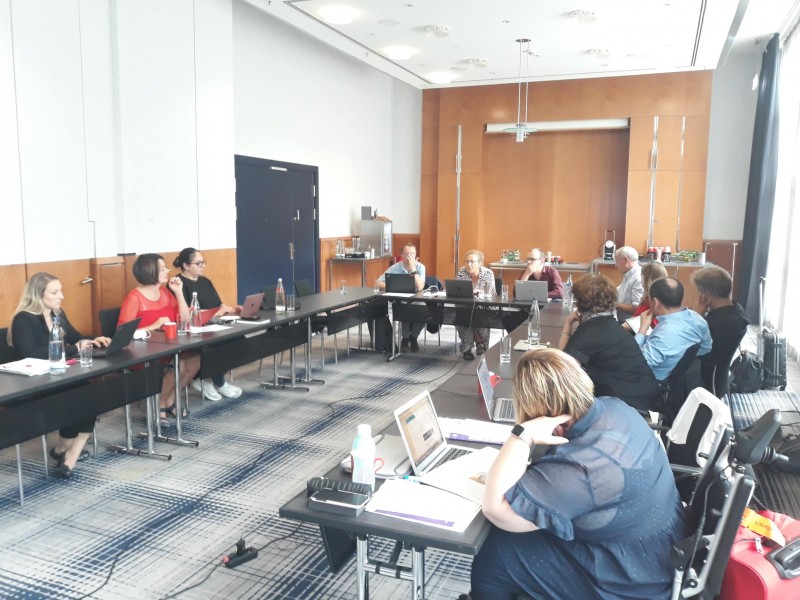
About the Stroke Action Plan for Europe
The Stroke Action Plan for Europe 2018-2030 is a document created as a result of collaborative work between SAFE and ESO.
Building on the preceding Helsingborg Declarations of 1995 and 2006, the Stroke Action Plan for Europe creates an aspirational framework to drive healthcare policy, research priorities, local stroke management and patient-focused care to meet the need demonstrated in the ESO/SAFE Burden of Stroke report, with €45 billion direct and indirect healthcare costs each year, a 34% increase in strokes by the year 2035 due to the ageing population, and huge variations in the level of stroke care available across Europe.
The popular version of the Stroke Action Plan for Europe 2018-2030 can now be downloaded from HERE.
The scientific version of this document is also available starting from today and can be downloaded from the following LINK.
About the Steering Committee for implementation of the Stroke Action Plan
The Steering Committee consists of one chair, two co-chairs (one from SAFE, one from ESO), eight Steering Committee members (six from ESO, two from SAFE) and two advisors (ESO).
Members of the Steering Committee:
Chair (ESO): Hanne Christensen
Co-Chair (SAFE): Arlene Wilkie
Co-Chair (ESO): Francesca Romana Pezzella
Members (SAFE): Grethe Lunde, Jelena Misita
Members (ESO): Bart van der Worp, Martin Dichgans, Diana Aguiar de Sousa, Robert Mikulik, Cristina Tiu, Urs Fischer
Advisors: Bo Norrving, Valeria Caso
ESO support: Luzia Balmer

Aug 23, 2019
SAFE is very pleased to announce the new Director General, Arlene Wilkie, commenced in post on the 12th August, leading and overseeing the delivery of all SAFE activity and projects, working with our existing experienced team of Jelena Misita, Communications Manager, Gary Randall, SAFE European Research Officer, Lucinda Shaw, Partnerships Manager and Sandra Jackson, Secretariat.
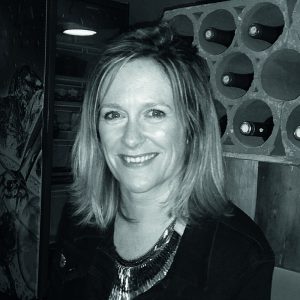
Arlene Wilkie, SAFE Director General
Arlene Wilkie, the new Director General, comes with a wealth of experience and expertise, derived from a variety of organisations and roles over the last twenty years in the healthcare sector, primarily in patient focused organisations. These include Director of Research and Policy at Breast Cancer Campaign, Chief Executive of the Neurological Alliance (a membership organisation of 70 neurological organisations in England), Chief Executive of The Migraine Trust, and Interim Director of Services and Influencing at the Brain Tumour Charity UK.
“I am so pleased to have joined SAFE. In the brief time I have been within here I have been so impressed by the passion of the staff and the board, and their determination to see a reduction in the number of strokes in Europe and the impact they have on peoples lives. I will strive to raise the profile of stroke and stroke survivors and ensure all is done to achieve the stroke action plan for Europe. I am also really looking forward to getting to know and working with all our supporters and members.” said Arlene.
One of Arlene’s great strengths is alliance building, particularly around policy development and implementation, and in her role she will be co-chairing the implementation committee of the Stroke Action Plan for Europe, and playing a leading role in our partnership group. Arlene can be contacted at arlene.wilkie@safestroke.eu
“SAFE has been through a very thorough recruitment process, and from over 130 initial candidates we are thrilled that Arlene has agreed to join us. Her track record is very impressive and over the next few years with the need to ensure sustainability of SAFE whilst pursuing important objectives such as the Stroke Action Plan for Europe and the strengthening of stroke associations in each country of Europe we know we will benefit from her leadership. The appointment of a Director General is a bold step and demonstrates SAFE’s belief that stroke care and the needs of stroke survivors must be pushed higher up the agenda.” stressed Jon Barrick, SAFE President.
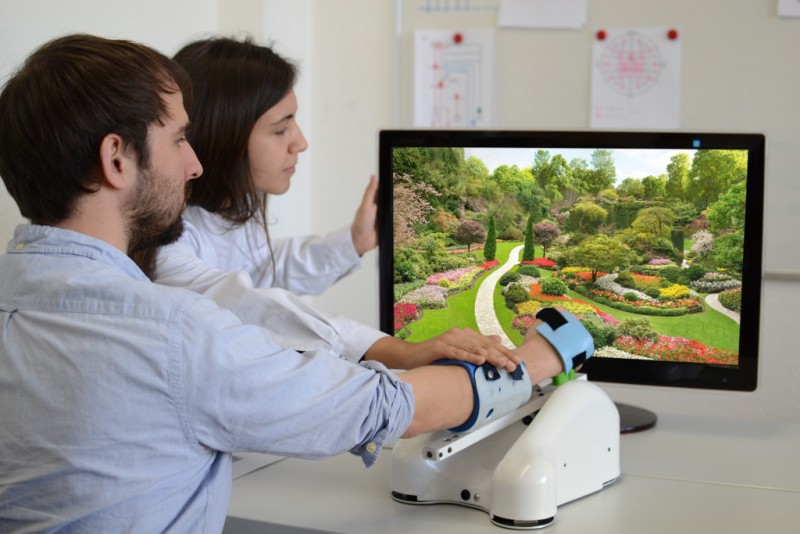
Aug 23, 2019
Project AMoRSA
AMoRSA stands for “Adaptive and highly motivating platform for the rehabilitation of patients with arm palsy following a stroke“. The project kicked off on March 1st, 2017 (ending February 29th, 2020).
MOTIVATION
In Europe, millions of people live with chronic paralysis after a stroke. An efficient strategy for systematic rehabilitation measures that is suitable for everyday use can help patients regain their mobility and carry out important everyday activities such as eating, drinking or dressing without outside help.
GOALS AND PROCEDURES
The aim of the project is to enable stroke patients with complete arm paralysis to rehabilitate their mobility providing them with complete arm paralysis with efficient, highly motivating and systematic neurorehabilitation suitable for everyday use. For this purpose, a training system will be created whose central element is a brain-muscle-machine-interface, which controls an exoskeleton attached to the paralyzed arm. The movement feedback generated by the actuators reactivates compromised connections between brain and muscles closing the brain-to-muscle loop and producing functional neuroplasticity. In addition, the rehabilitation system is embedded in a digital health game that intuitively communicates health information and training progress to patients and continuously motivates them.
INNOVATIONS AND PERSPECTIVES
By combining an orthotic robotic system with a direct feedback function, a novel training system for neurorehabilitation will be developed and the first clinical pilot will be performed during the project. This rehabilitation environment enables chronically paralyzed stroke patients to participate in life without restrictions again.
SURVEY
The burden of stroke is dramatic at many levels and there is a lack of controlled clinical trials and cost/efficacy analyses to incorporate new methods into everyday clinical practices. Furthermore, in many of the new developments and therapies, there is a clear lack of stakeholders involved during clinical research to clinical trials and practice transition. Current trends in stroke rehabilitation include the use of robotics (mainly to compensate therapists shortage and increase of demand), the use of serious games (computer gaming, virtual and augmented reality) to increase patients’ engagement and intensity of training, the telerehabilitation (home-use video games and training and movement assessment gadgets) and the use of neural interfaces to re-activate dormant or to generate via neuroplasticity mechanisms, connections between brain and muscles. All these components are present in AMORSA project.
With this survey, we want to investigate the demographics of the steadily changing stroke survivors community (including not only patients but their caregivers and therapists), their common limitations, interests and their opinion about these new rehabilitation trends. Furthermore, we want to quantify the potential adoption of new-coming treatments/therapies based on these trends. We have designed 3 different surveys, one for the patients, another for their caregivers (family and relatives) and the last one for therapists (neurologists, physiotherapists, etc).
Patients: we want to quantify the a) impairment level of the patients, especially the chronic ones; b) their current involvement in treatment, prevention or assistive measures; c) their use of technology (TV, smart-phone, video-games, etc) and their technology literacy; d) expectation regarding new therapies based on the mentioned trends; e) acceptable duration and intensity of rehabilitation therapies based on the trends and their acceptance rate; f) social aspects within the stroke community (e.g. interest in patients forums); g) the cost/benefit or compromise of rehabilitation measures based on the trends (e.g. acceptable specifications of an implanted solution for rehabilitation or assistive technology and the movement restoration achieved); h) interest in home-based rehabilitation gadgets based on the trends.
Care-givers: we want to quantify the almost the same as for the patients but from their perspective (normally we have observed a significant difference in perception in aspects of interest, motivation, impairment, etc);
Therapists: we want to quantify their a) demographics and skills; b) the clinical assessment scales (e.g. ARAT, MRC, NIHSS, Fugl-Meyer) and rehabilitation methods used (e.g. robots, mirror, group therapies); c) their service characteristics/limitations (e.g. number of patients per therapist, time per session etc); d) new therapies based on trends minimum requirement to be adopted (e.g. preparation time, easy to use etc); e) compensation limitation to accelerate the adoption of new therapies; f) relevance of predictor of recovery or biomarkers for patients stratification for rehabilitation therapies; g) their opinion on cost/benefit or compromise of rehabilitation measures based on the trends (e.g. acceptable specifications of an implanted solution for rehabilitation or assistive technology and the movement restoration achieved); h) interest in home-based rehabilitation gadgets based on the trends.
Please take part in this survey by clicking on these links below:
Patients: https://www.soscisurvey.de/amorsa_reha1/
Relatives / caregivers: https://www.soscisurvey.de/amorsa_reha3/
Therapists: https://www.soscisurvey.de/amorsa_reha2/
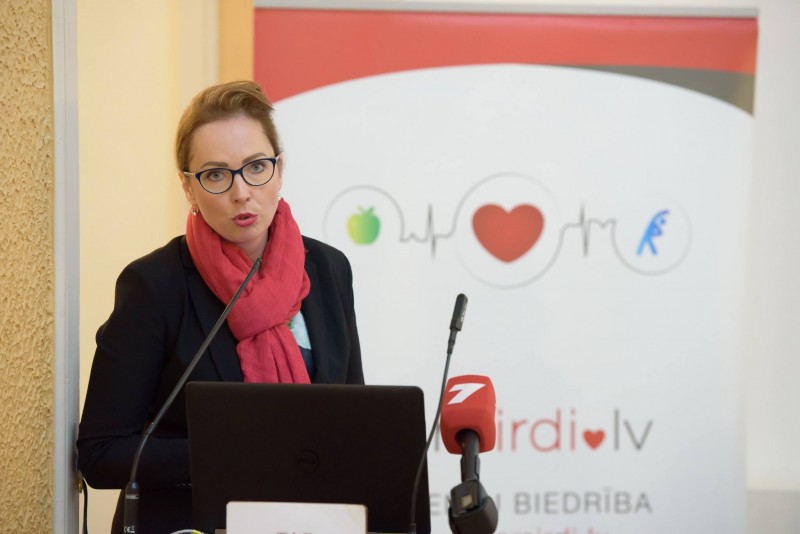
Aug 23, 2019
This week, Inese Maurina from Latvian organisation Parsirdi.lv, offered SAFE team an insight into the needs of the Stroke Survivors and #LifeAfterStroke issues in her country.
SAFE: What is one issue related to the life after stroke in your country that you think needs special attention?
IM: I would like to stress two things:
1) Rehabilitation – there are long waiting lists to get the rehabilitation services after stroke. Patients and their relatives are also confused because of lack of sufficient information on where to go, what to do next, where to look for help, where to get rehabilitation services, etc.
Due to these reasons lot of patients receive rehabilitation too late or not as much as needed.
2) Availability of medicines and patient adherence
Increasingly effective medications are available for the prevention and treatment of stroke risk factors, but often patients cannot afford to pay for them, so they stop taking them or even do not start to use medicines. This leads to very serious consequences – illness, disability or death. Similarly, many patients do not qualify for medication reimbursement due to very strict requirements.
According to data of Stroke Units, there are many patients who return to the hospital and one of the reasons is discontinuation of medication. This is due to both – the financial capacity of the patients and also the lack of understanding of the need for medication and poor cooperation with their physicians and specialists.
SAFE: What would be the solution, i.e. what is your organisation’s position regarding this issue?
IM: Not only stroke has serious health consequences, but it also has a very heavy social and financial burden on patients, their families and society as a whole. According to estimates of the Latvian Health Economics Association, patients and their relatives bear almost one third of the total cost of stroke treatment in Latvia, which is over 70 million euros per year. According to health economists, such a “co-payment” for stroke patients is too high given the high rates of disease mortality and disability. The burden of the disease on the social security budget could be substantially reduced by ensuring timely stroke prevention, treatment and quality rehabilitation.
It would be important to increase the healthcare budget spent on the post-stroke rehabilitation services in order to make this service available to all patients and without long waiting lists. There is also a need for specialists and innovative technologies to improve the rehabilitation services in Latvia. It would be also important to develop clear patient pathways information materials to be disseminated to both stroke units and GPs.
The health budget for stroke prevention needs to be increased, as it will reduce the number of sudden strokes and thus require lower treatment, rehabilitation and disability costs. There is a need to increase also budget for innovative and effective medical medicines and to improve the collaboration of patients and doctors in order to increase the patient adherence.
SAFE: Please tell us more about your organisation.
IM: ParSirdi.lv is non-governmental organization founded in 2011, bringing together various heart and cardiovascular disease patients and their relatives. Our mission: to reduce the impact of heart and cardiovascular diseases by promotion of healthy living, educating society regarding the risks of diseases, ensuring the access to health care information and advocacy of patients.
Our aims are:
Protecting the rights of cardiovascular patients to access quality medical care (medicines, devices and services);
Identify and reduce factors that prevent patients with cardiovascular disease from receiving quality healthcare;
Improve the quality of life of people with cardiovascular diseases through active involvement in the development of national cardiovascular policy, in cooperation with state and municipal institutions;
Facilitate the exchange of information between patients, medical professionals and the public with the aim of helping patients with cardiovascular disease to successfully organize their daily lives, integrate into public life, and achieve professional success;
Carry out educational work to raise awareness among cardiovascular patients and the general public about cardiovascular disease, its prevalence, risk factors and treatment;
Promote a healthy lifestyle;
Develop projects to improve the quality of life of patients with cardiovascular disease.
Since 2013 patient organization ParSirdi.lv is an associated member of the international organization SAFE (Stroke Alliance for Europe).
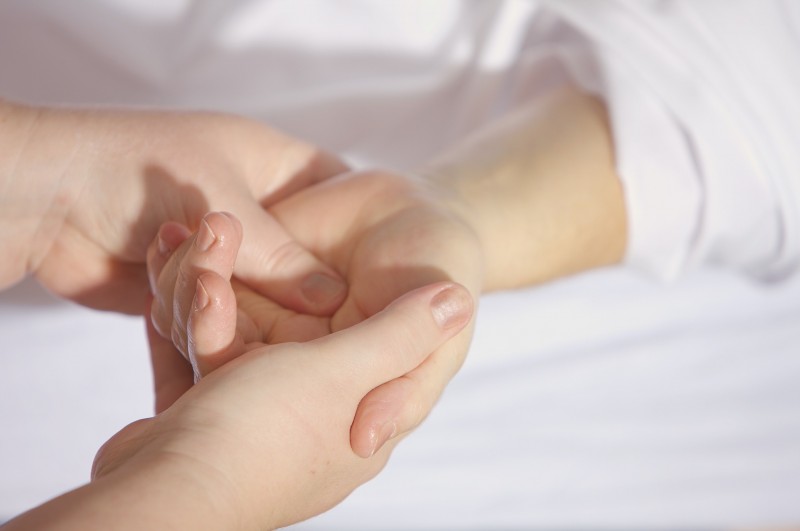
Aug 23, 2019
Do you or someone you know have experience with spasticity and Botulinum Toxin Type A injections?
SAFE invites you to participate in an international survey, conducted by Carenity, an online patient community, and biopharma Ipsen to help advance medical research and improve the lives of other patients.
Both patients and caregivers of patients with spasticity due to stroke (as well as traumatic brain injury or spinal cord injury) who are currently receiving Botulinum Toxin Type A injections or who have stopped receiving these injections less than a year ago can participate.
Botulinum toxin effect usually peaks around 4 to 6 weeks after injection, then it slowly decreases. This decrease is called the waning of botulinum toxin effect. The aim of this survey is to better understand patients’ experience with botulinum toxin type A injections, in particular:
– to better understand how patients experience the waning of botulinum toxin type A effects
– to identify the impact of the waning of botulinum toxin type A effects on the patient’s quality of life
– to describe patient populations profile
– to assess the reasons for stopping botulinum toxin type A injections
This survey will be the subject of communications during scientific congresses or scientific publications that will be redacted in collaboration with an international team of medical experts.
A synthesis of the results will be made available after the publications.
This international survey is conducted in Europe (France, Germany, Italy and the UK) and in the US until September 13th.
It is available in 4 languages:
English: https://member.carenity.co.uk/newSurveyBymail/0/38/0/0
French: https://membre.carenity.com/newSurveyBymail/0/107/0/0
German: https://member.carenity.de/newSurveyBymail/0/26/0/0
Italian: https://member.carenity.it/newSurveyBymail/0/25/0/0
Thank you very much for your participation!
Participation in this survey is unpaid.
To find out more about how your data will be processed and how to exercise your rights, read the survey information page, accessible when you click on the link provided above in this text.











